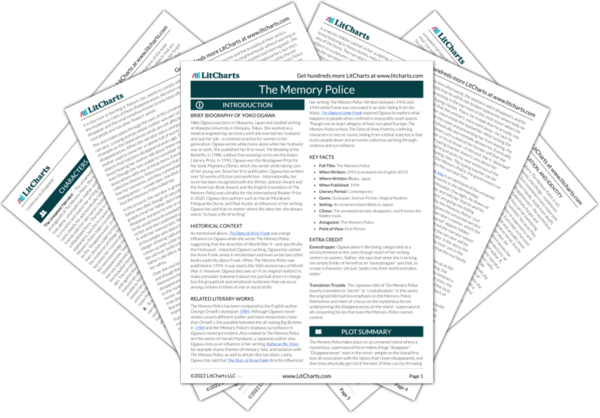Again, there is something very impressive about the speed with which the narrator and the old man work, indicating that they knew something like this was coming. It’s lucky that the old man is so resourceful, otherwise they wouldn’t be able to construct the room that they do—this suggests that people in less fortunate circumstances are in even more danger, since the Memory Police is hoarding resources.
